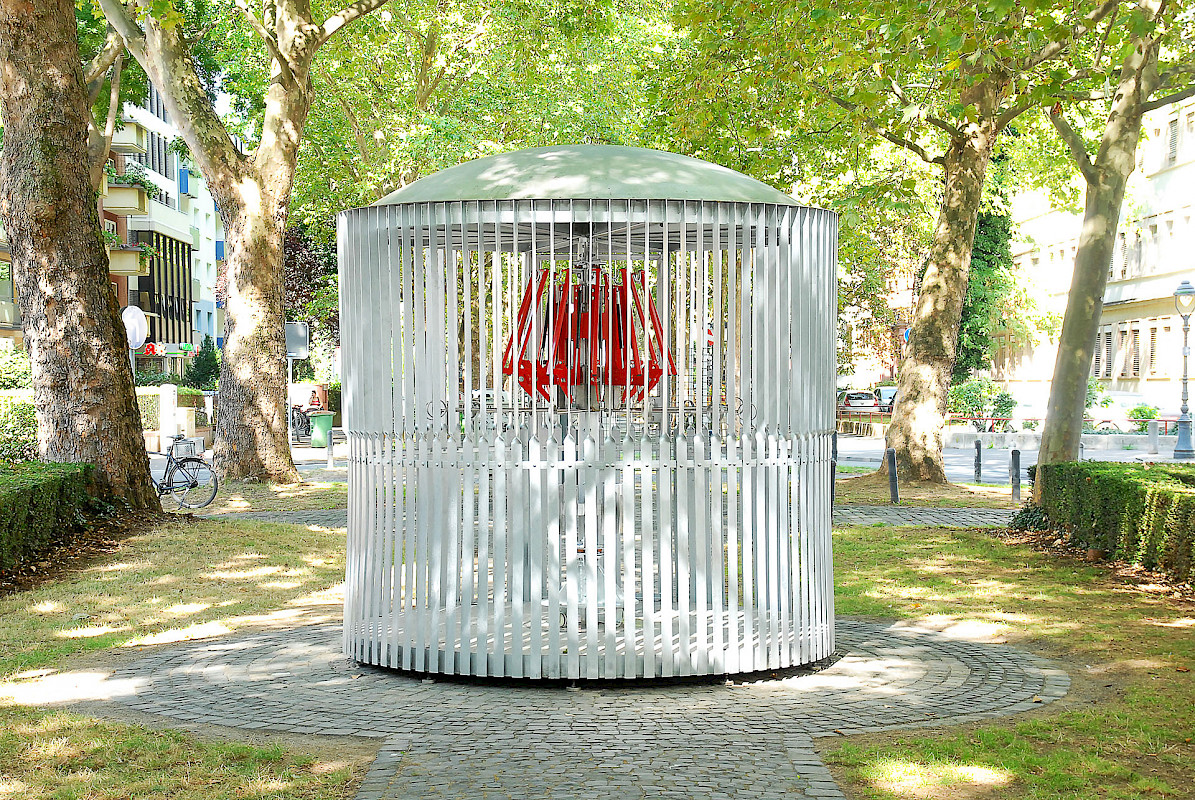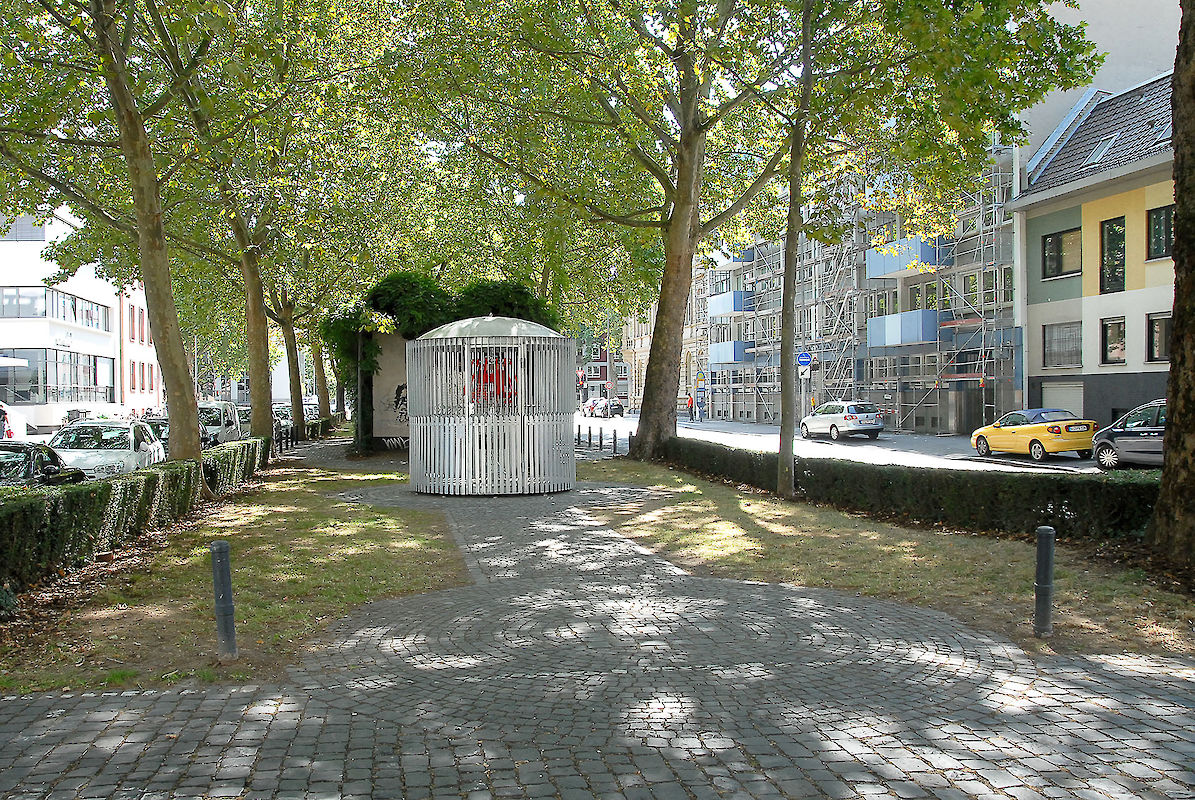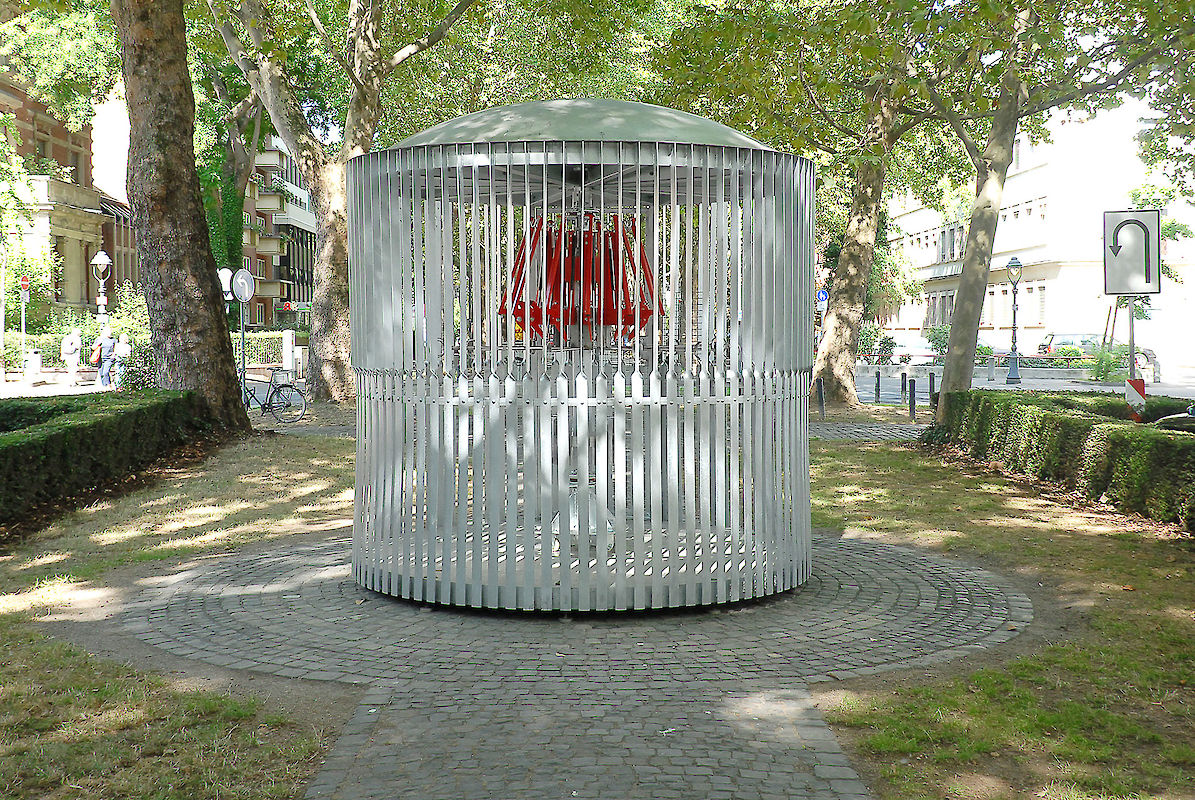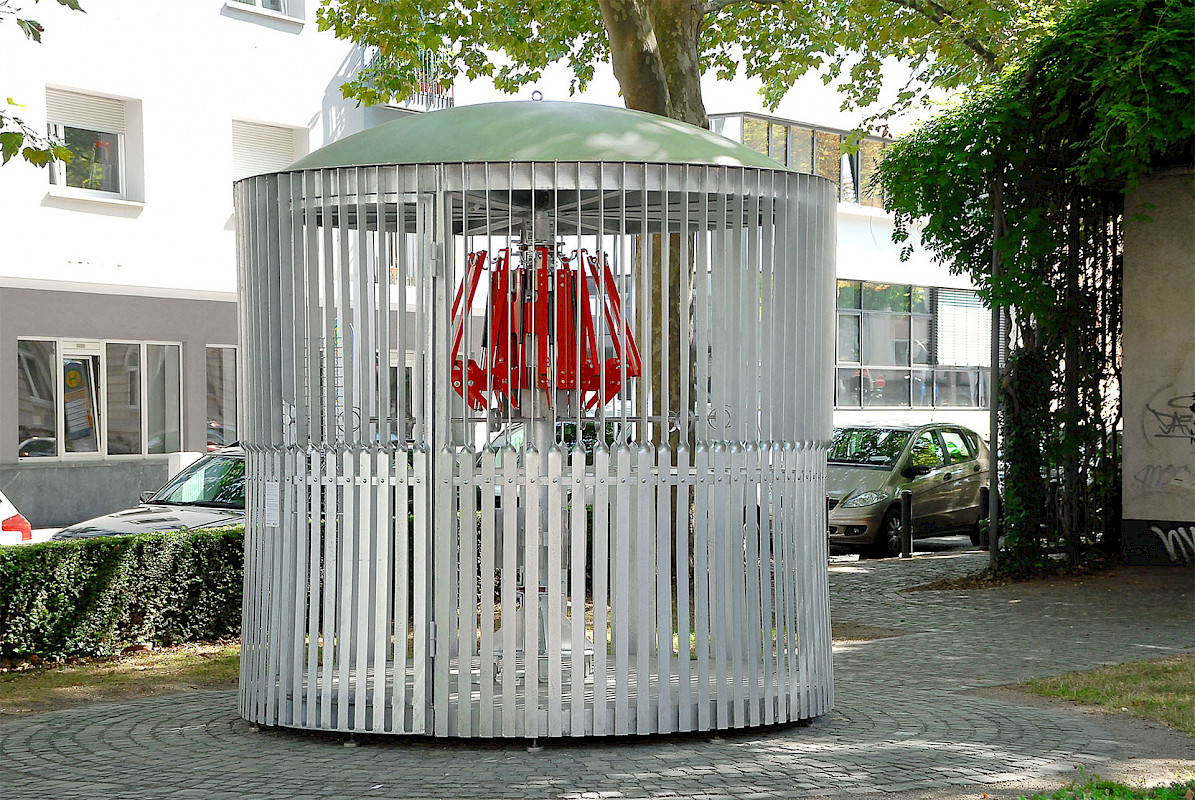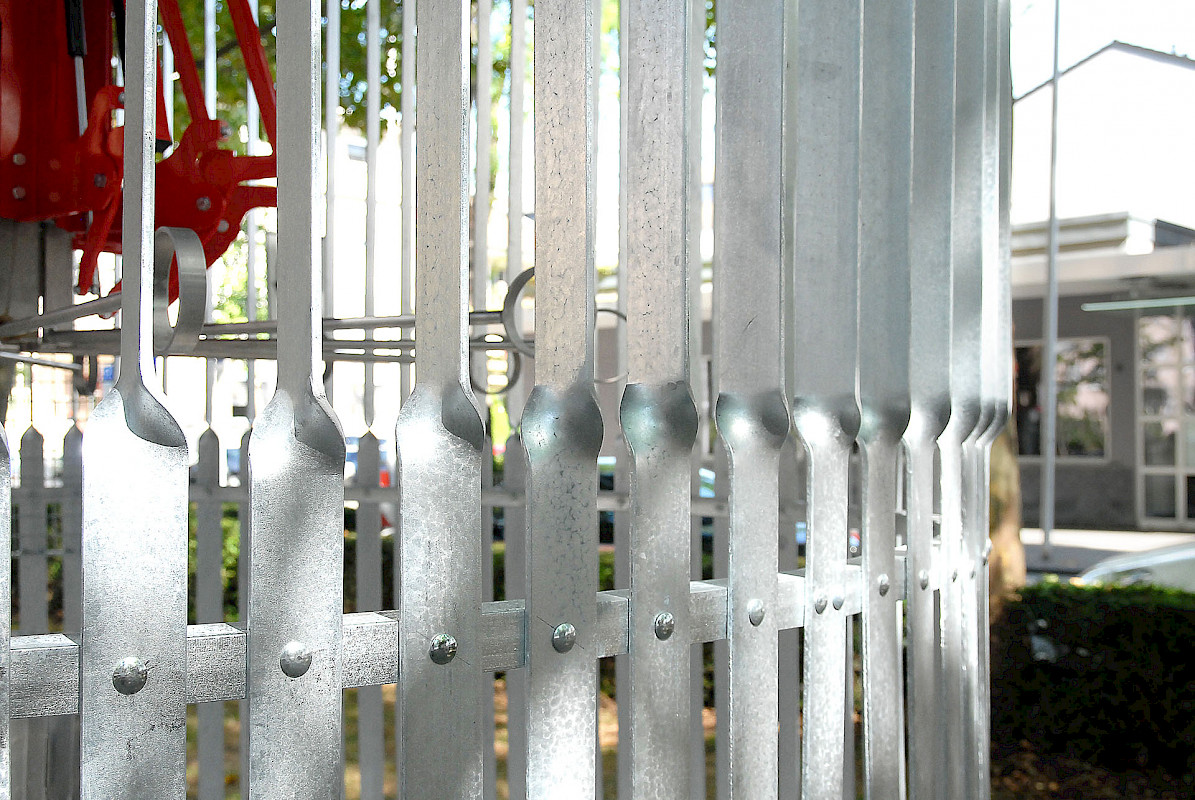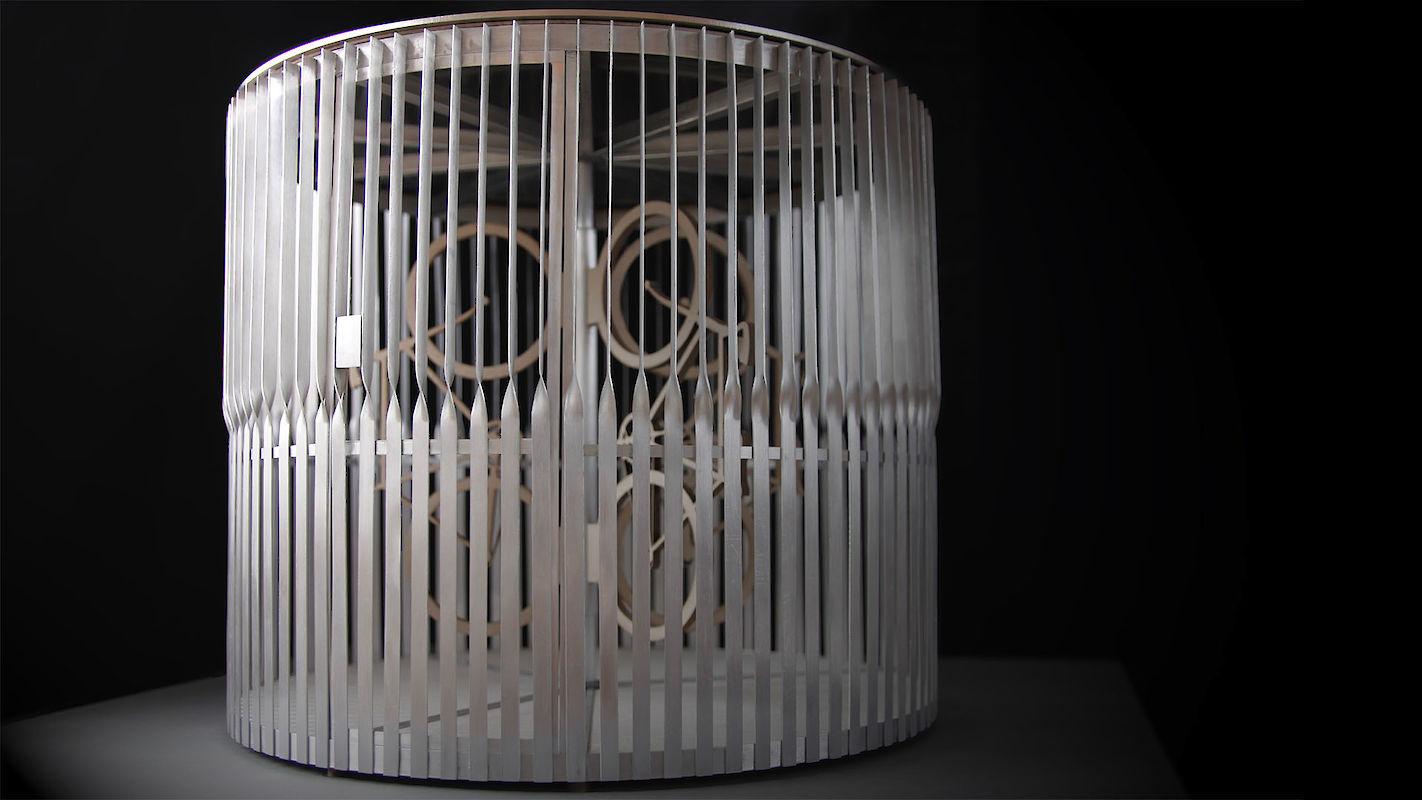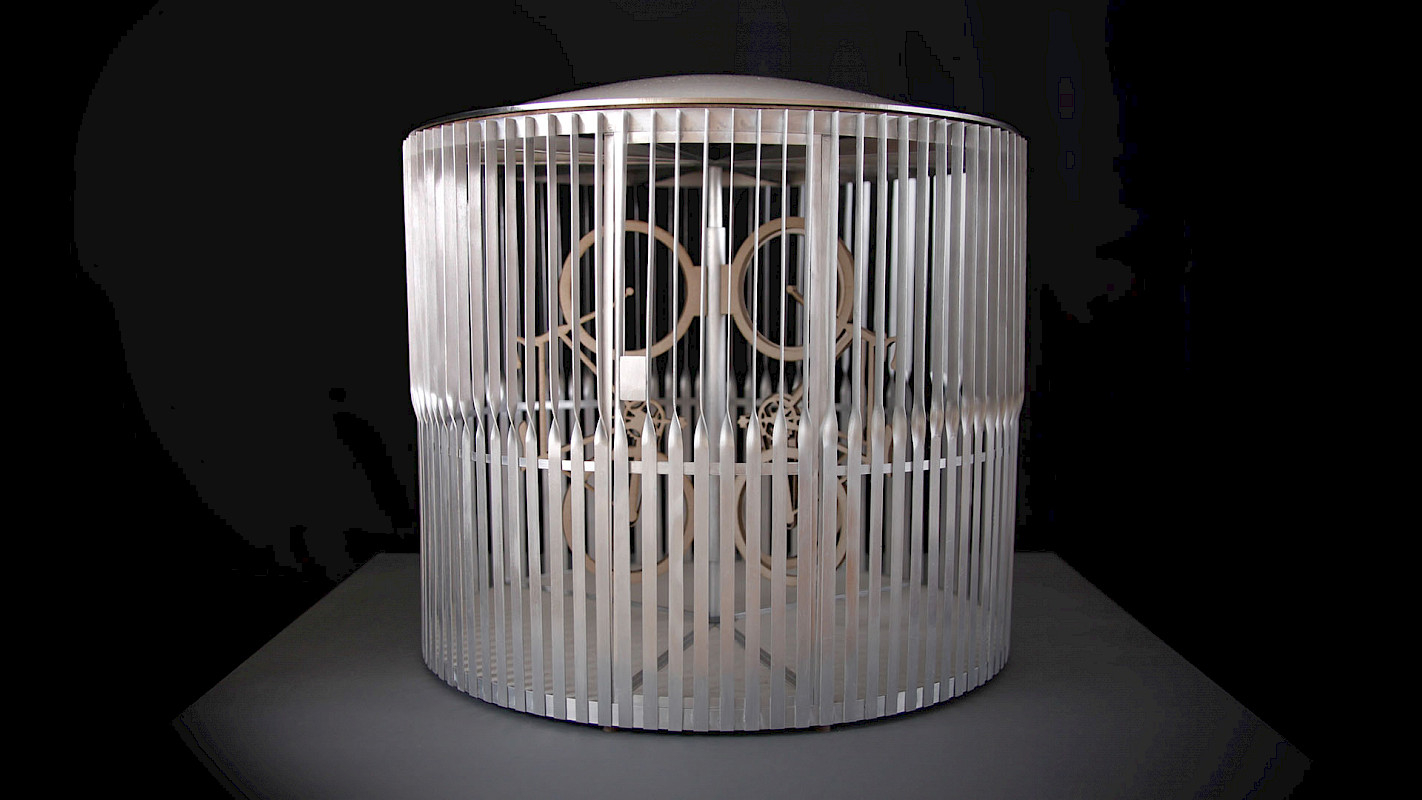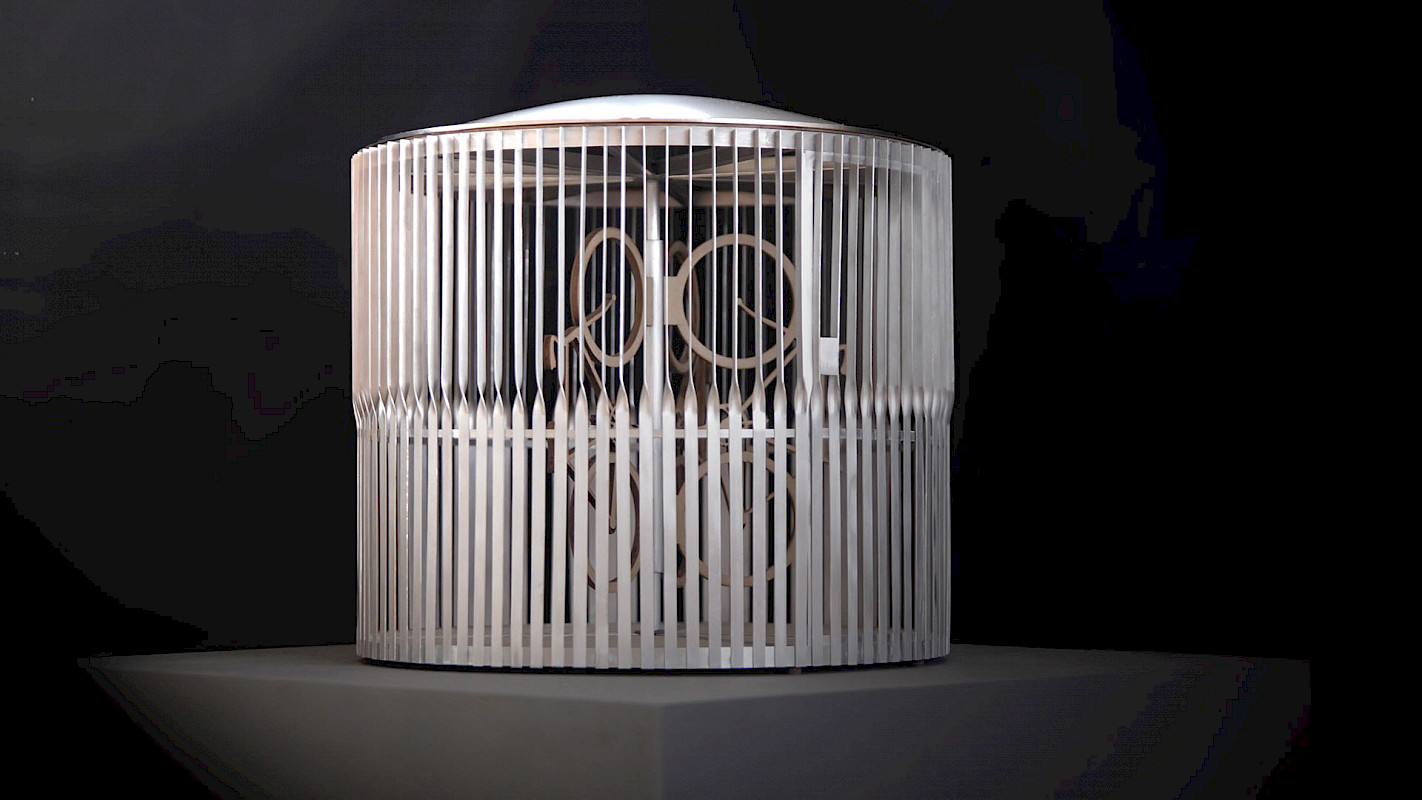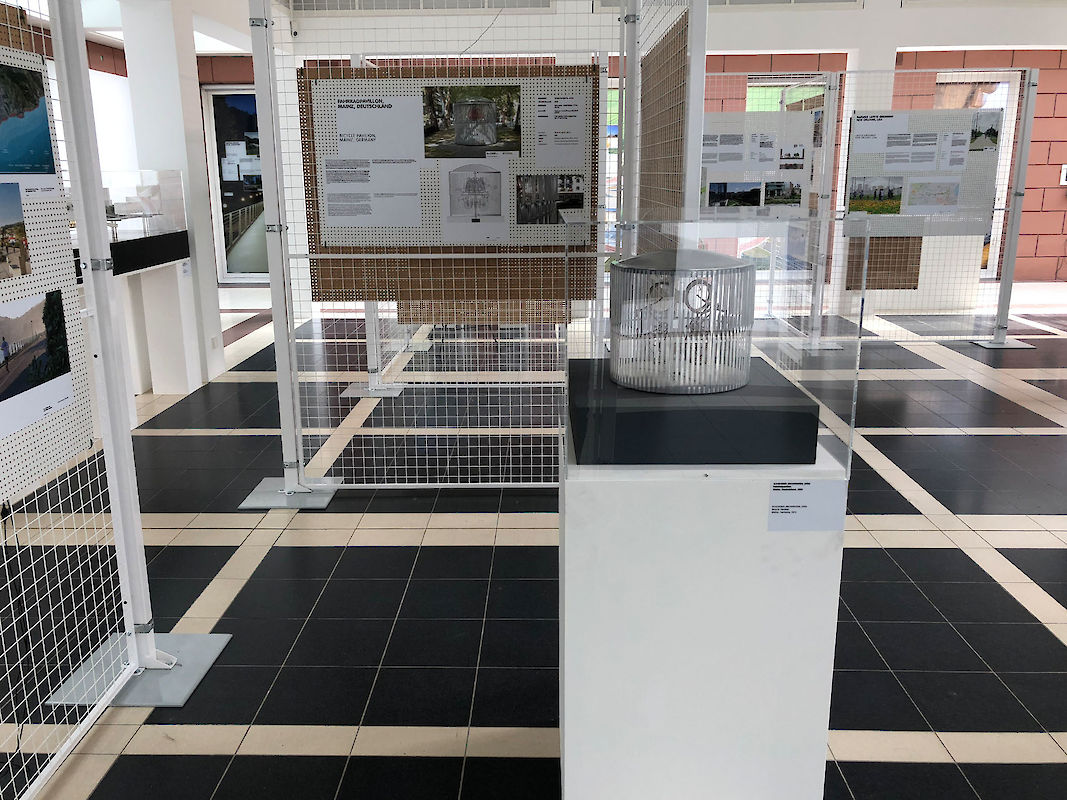Fahrradpavillon Mainz
German Design Award Nominierung 2019
BDA Architekturpreis Rheinland-Pfalz Anerkennung 2018
Feuerverzinker-Industrie 1.Preis 2017
Statik: Grebner Ingenieure, Mainz
FAHRRADPAVILLON – PROTOTYP AM HINDENBURGPLATZ IN MAINZ
Die Stadt Mainz stellt mit ihrem gut strukturierten Netz von Fahrradstationen zahlreiche Mieträder zur Verfügung. Für Privaträder fehlte es jedoch bislang an Infrastrukturen wie geeigneten Abstellplätzen. Viel zu oft trifft man auf verwaiste Fahrräder, die Witterung und Vandalismus zum Opfer fallen.
Die auf dem Markt erhältlichen Fahrradhäuschen sind aufgrund ihrer mangelnden architektonischen Qualität und konstruktiven Ausbildung zu sehr vandalismusanfällig und somit nicht für den öffentlichen Raum geeignet.
Vor diesem Hintergrund entwickelten SCHOYERER ARCHITEKTEN_SYRA für die Stadt Mainz einen ersten Prototyp eines Fahrradpavillons. Getreu der Büro-Philosophie, das Alltägliche neu zu beschreiben, wurde auch beim Entwurf für den Fahrradpavillon ausschließlich auf industriell vorgefertigte Massenprodukte zurückgegriffen. Es gibt keine Sonderbauteile, lediglich die Flachstahl-Fassadenstäbe wurden jeweils einmal um 90 Grad verdreht.
So wurde ein robuster Pavillon entworfen, der eine optisch reizvolle Lösung bietet und bis zu zwölf Fahrrädern Schutz bietet.
Der gesamte Pavillon wird komplett im Werk gebaut und am Stück an seinen Bestimmungsort transportiert – eine lärmbehaftete Baustelle erübrigt sich.
Statics: Grebner Ingenieure, Mainz
Bike pavilion – prototype located at Hindenburgplatz, Mainz
With its well-structured network of bike stations, the city of Mainz provides numerous rental bikes. However, up until now, there has been a lack of infrastructure for privately owned bikes, such as suitable parking places. All too often, you encounter neglected bikes that have fallen victim to the weather and vandalism.
As a result of their low architectonic quality and the manner of their construction, the bicycle sheds found on the market are easily susceptible to vandalism, and therefore unsuitable for public spaces.
It was against this background that SYRA_SCHOYERER ARCHITEKTEN developed an initial prototype of a bike pavilion for the city of Mainz. True to the practice’s philosophy of repurposing everyday items, only industrially pre-built mass-produced products were used in the design of this bike pavilion. There are no special components, although the flat steel facade bars were each rotated 90°.
In this way, they succeeded in creating a sturdy pavilion, which represents a visually appealing solution, as well as offering protection for up to 12 bikes.
The entire pavilion was completely built in the factory, and transported to its ultimate location in one piece, removing the need for a noisy building site.
Ausstellungen
| 2020 | DAM - FAHR RAD! Die Rückeroberung der Stadt - Ausstellung in Dornbirn und Innsbruck | DAM-ONLINE | |
| 2019 | AIT - Dialog | „Fahr Rad!“ – Ausstellung im AIT-ArchitekturSalon Hamburg | AIT-DIALOG.DE | |
| 2019 | BauNetz - Fahr Rad! Ausstellungseröffnung in Graz | BAUNETZ.DE | |
| 2019 | DAM-Ausstellung zur fahrradfreundlichen Stadt; Mobilität der Zukunft, Baukultur Dialog Kassel; im Anschluss: Fahr Rad! in Kassel | Einladung | BAUNETZ.DE |
| 2019 | DAM - Ausstellung "Fahr Rad! Lebenswertes Kassel - radeln wir gemeinsam" | Pressemitteilung Flyer Seite 1 Flyer Seite 2 | |
| 2018 | Architekturgalerie Kaiserslautern | BDA-BUND.DE | |
| 2018 | BDA Preis Rheinland-Pfalz Ausstellung Stadtbibliothek Trier | BDA-BUND.DE | |
| 2018 | FAHR RAD! Die Rückeroberung der Stadt | Bild | DAM-ONLINE.DE BAUNETZ.DE |
Auszeichnungen
| 2021 | BauNetz-Ranking für Verkehrsbauten-bundesweit - SYRA auf Platz 5 | BauNetz.de | |
| 2018 | Preisträger BDA-Architekturpreis Rheinland-Pfalz 2018 Anerkennung | Urkunde Jurybegründung | BDA-BUND.DE |
| 2018 | BDA-Preis Rheinland-Pfalz 2018 vergeben | BAUNETZ.DE | |
| 2018 | Nominierung German Design Award 2019 | Bild | GERMAN-DESIGN-AWARD.COM |
| 2017 | Feuerverzinker-Industrie 1.Preis | Urkunde | BAULINKS.DE |
Publikationen
| 2024 | Der Mainzer Fahrradpavillon | Flyer | MAINZ.DE |
| 2019 | DABonline - Ruhende Räder | DABONLINE.DE | |
| 2018 | Feuerverzinkten - Feuerverzinkte Fahrradparksysteme | FEUERVERZINKEN.COM | |
| 2018 | DAM - FAHR RAD! Die Rückeroberung der Stadt | DAM-ONLINE.DE | |
| 2017 | German architects - Industriell vorgefertigt | GERMAN-ARCHITECTCS.COM | |
| 2017 | Feuerverzinken | FEUERVERZINKEN.COM | |
| 2017 | Competitionline - Fahrradpavillon | COMPETITIONLINE.COM | |
| 2016 | Fahrradmainz.de - Bequem und durchdacht: Der erste Mainzer Fahrrad-Pavillon macht Dein Leben leichter. | FAHRRADMAINZ.DE | |
| 2015 | Allgemeine-Zeitung - Erstes abschließbares Fahrradhäuschen in Mainz | ALLGEMEINE-ZEITUNG.DE |

